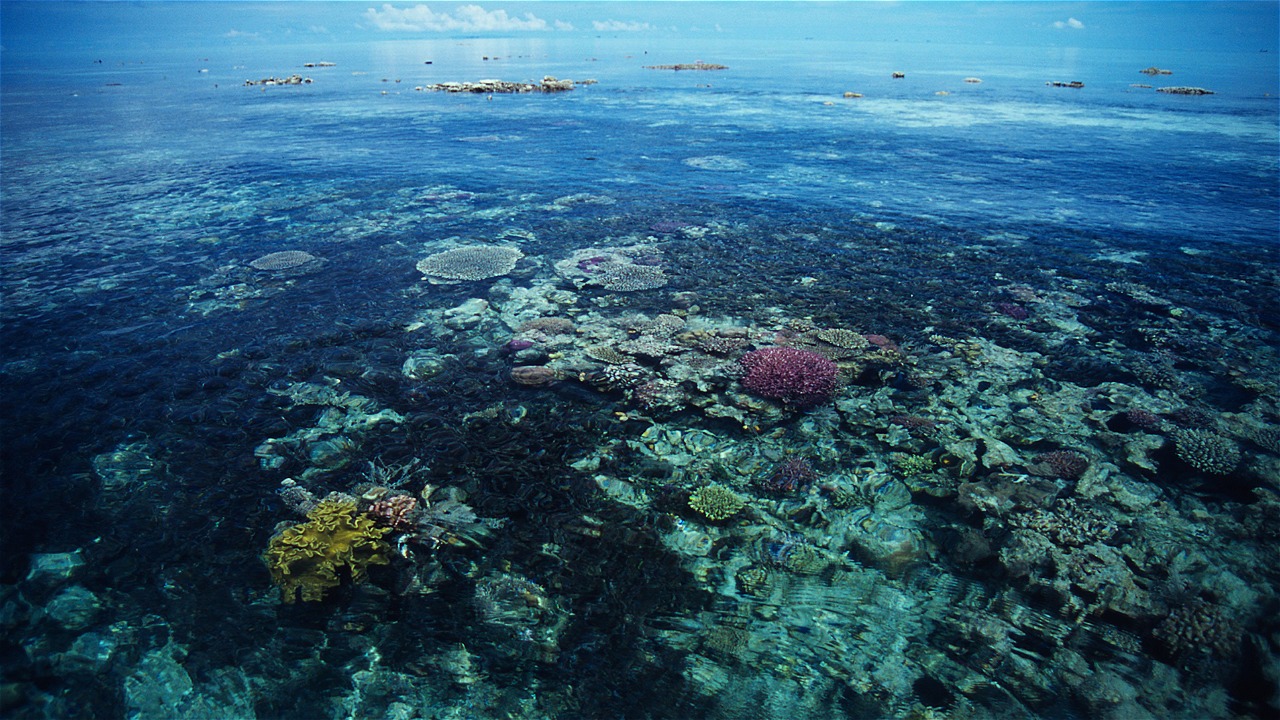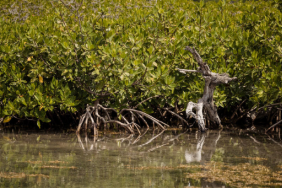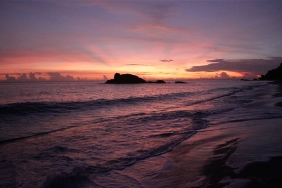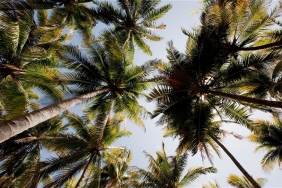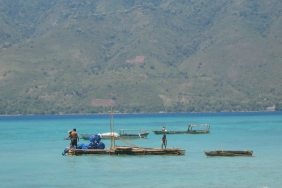EXPLORING THE NATURAL TOURISM POTENTIAL OF TAKA BONERATE WITH THE LOCAL COMMUNITY
Author: Martina Rahmadani (Responsible Marine Business Officer, WWF-Indonesia)
WWF-Indonesia through the Southern-Eastern Sulawesi Subseascape (SESS) program team together with the Taka Bonerate National Park (TN) Balai conducted an assessment of the tourism potential of the Taka Bonerate TN area by involving local communities through mapping the potential for participatory tourism villages.
Taka Bonerate National Park, located in Selayar Regency, South Sulawesi, is one of the marine national park areas in Indonesia that has an amazing coral atoll beauty. It is also the third largest atoll after Kwajifein in the Marshall Islands and Suvadiva in the Maldives, with a total area of 220,000 hectares and 500 km² of coral reefs. Seeing this potential, Taka Bonerate National Park has become one of the leading tourism destinations in Selayar Regency and can be a magnet for tourists who love underwater beauty.
To support the development of marine tourism in Taka Bonerate National Park, in late March to early April 2016 WWF-Indonesia also collected information from local communities living on islands within the national park area. WWF-Indonesia's SESS team collected data related to social, cultural, economic conditions, as well as natural potential owned by the community that can be a common asset to be developed into a tourism attraction within the Taka Bonerate National Park area. The WWF-Indonesia team conducted Focus Group Discussion (FGD) and invited residents on each island to actively support the development of tourism potential in their area.
For eight days (March 28-April 4, 2016), WWF-Indonesia's SESS team and the Taka Bonerate National Park together with a local NGO in Selayar (Econatural Society) conducted an assessment of all inhabited islands in the national park area, namely Jinato Island, Pasitallu Tengah Island, Pasitallu Timur Island, Rajuni Kecil Island, Rajuni Besar Island, Latondu Island, Tarupa Island. Not only that, there are also two islands visited that are included in the tourism utilization zone of Taka Bonerate National Park: Taka Gantarang Island and Tinabo Island. The WWF-Indonesia SESS team conducted an initial assessment of the feasibility of the village to be developed into a tourist village. There are eight aspects that become important points of assessment: attractiveness, accessibility, infrastructure and carrying capacity, market, acceptance of surrounding communities, security and safety, land status, and policies. In addition, the community in each village on these islands also actively participated in exploring the potential and actual conditions in their respective villages.
The majority of the communities within the Taka Bonerate NP area make their living as fishermen. However, they are very enthusiastic and open to providing information about their natural and social and cultural wealth in order to develop ecotourism potential. From the results of FGDs and potential mapping carried out in a participatory manner by the community, it appears that the marine potential in the Taka Bonerate National Park area is quite high. According to the community, protected animals such as whales, dolphins, turtles, rays, sharks and schooling coral fish are often found in the waters of this area. In addition, the coral cover is no less interesting than the underwater scenery of other national parks in Indonesia. From the assessment results, it can be seen that each island has a good tourist attraction. However, there are still some challenges that will be faced in future tourism development. One of them is the facilities and infrastructure supporting tourism considering the location of Taka Bonerate National Park is quite far from the capital city of the regency and must travel a distance of 6 - 8 hours using sea transportation.
Building Responsible Maritime Tourism
In 2015, WWF-Indonesia's Southern-Eastern Sulawesi Subseascape (SESS) program started a community-based marine tourism development program in the Taka Bonerate National Park area. Activities began with an initial analysis of the tourism situation, followed by socialization and together with tourism observers in Selayar, a forum or association for tourism activists and observers in Taka Bonerate was formed in May 2015. The forum established its name as the Association of Tourism Activists of Selayar Taka Bonerate (P3ST). The goal of WWF-Indonesia's SESS program in marine tourism is to reduce adverse impacts on the environment and provide more value to communities around tourist sites.
Good tourism development is tourism that involves the community and provides benefits for those who strive to improve and protect the environment so as to get more value from the tourism activities themselves. For this reason, the role of many parties is needed, to accelerate the improvement of the community's economy, one of which is cooperation between the local government, Taka Bonerate National Park, NGOs / NGOs, and local communities.

